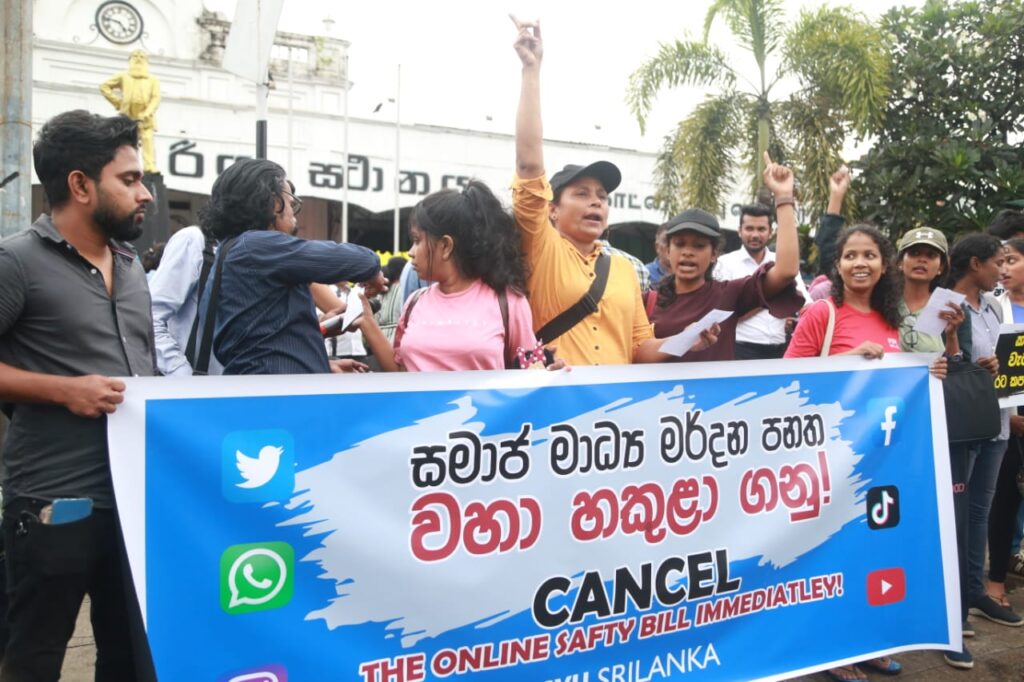Media and civil society groups against Online Safety Bill
Tomorrow the Sri Lankan parliament will begin examining a controversial government bill. Last year, 8,000 complaints were filed, 3,000 related to social media. Critics warn that the proposed legislation is flawed, its vague definitions of terms and offences creating considerable risks for arbitrary and subjective interpretations.
Colombo (AsiaNews) – The Sri Lanka Press Institute (SLPI), its members, and affiliated organisations have expressed serious concern over the government's proposed Online Safety Bill and its implications for freedom of expression and freedom of the press.
Despite such concerns and fears expressed by many in civil society, the cabinet is set on pushing the controversial bill, which will go before parliament tomorrow.
In his address to the media, Minister of Public Security Tiran Alas said that last year, 8,000 complaints were made, 3,000 related to social media. This is why, regardless of external pressure, he intends to present the bill to the House tomorrow as scheduled.
The minister noted that international organisations and foreign embassies have already raised concerns and expressed criticism of the draft legislation, urging Sri Lanka to drop it. Instead, he stressed that the bill is designed to protect women and children.
While acknowledging the need to regulate internet intermediaries, the bill’s main purpose, the SLPI identified several controversial elements in it that can have serious impact on the work of journalists and media as well as ordinary Sri Lankans.
Considering the amendments that will be proposed in the parliamentary committee vetting the bill, in the wake of the Supreme Court's ruling of November 2023, it is expected that 31 of the 56 articles will be revised in line with the principles of democracy and the constitution.
The aim is to improve them to meet the media's demand for freedom of expression, as well as set the degree of autonomy of the Online Safety Commission and the definition of the offences.
According to critics, the bill has several shortcomings, such as a vague definition of terms and delineation of offences, with a considerable risk for arbitrary and subjective interpretations.
All of this raises serious concerns about the potential criminalisation of various forms of legitimate expression.
Ambiguities can create an environment in which all stakeholders, including the media, will be hesitant to speak out, undermining the fundamental principles of free speech and contributing to a climate of self-censorship.
As the Supreme Court noted, the Commission must be structured in such a way as to guarantee its independence, above any political or other influence that could compromise its impartiality.
In a statement, the SLPI is proposing that the Commission’s members be appointed by the relevant industry bodies based on defined criteria, with nominations considered by the Constitutional Council and then recommended to the president for appointment.
The SLPI further reiterates that the bill must reflect a balance in content and purpose. While disinformation and hate speech online need to be addressed, the measures taken must not hinder freedom of expression.
A “balance is necessary to maintain a democratic, transparent and accountable society,” the SLPI said in conclusion.
25/01/2024 12:09
05/11/2021 14:24
07/07/2022 14:51







.png)










